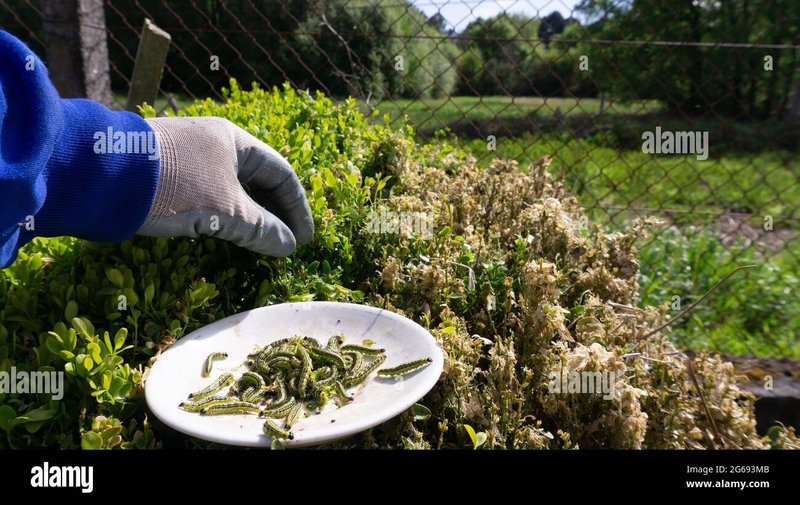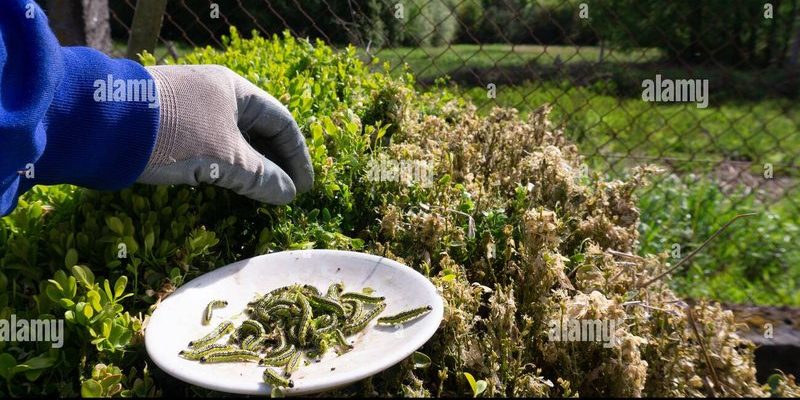
Many gardeners overlook the importance of sanitation, thinking it’s just about watering and sunlight. But here’s the thing: if the soil isn’t clean and the area around your plants is cluttered, it becomes a playground for pests, including garden worms. Think of them like uninvited guests who can wreak havoc on your beloved greens. So, let’s dive into how to keep your garden town squeaky clean and worm-free!
Why Garden Sanitation Matters
Keeping your garden clean isn’t just about aesthetics; it’s vital for the health of your plants. Poor sanitation can lead to an array of issues, from insect infestations to diseases that can spread like wildfire through your garden. If you’re wondering why this happens, think about how trash piles up in a neighborhood and attracts pests. The same goes for your garden—decomposing plant matter, weeds, and debris can attract worms and other unwanted critters.
Imagine you’ve got a compost pile in your garden. If it’s not managed correctly, it can become a breeding ground for not just beneficial worms but also harmful ones that can infest your soil. Keeping your compost tidy and turning it regularly helps maintain balance and prevents it from attracting pests. There are lots of benefits to having a clean garden, including healthier plants and a more pleasant gardening experience.
Additionally, sanitation helps you manage pests more effectively. If you create a clean environment, you’ll notice fewer pests. Fewer pests mean fewer chemicals and interventions required. It’s a win-win situation! So, let’s explore how to properly sanitize your garden to keep those pesky worm infestations at bay.
Regular Cleaning: Clearing Out Debris
One of the simplest yet most effective ways to prevent worm infestations is to regularly clean your garden. Start by **removing any dead leaves, old plant material, and debris** that can harbor pests. Think of it as spring cleaning for your plants! You’d be surprised how much junk can accumulate in a garden, especially during the fall and winter months.
Make it a habit to check your garden weekly. Look under bushes and in flower beds where old leaves might be hiding. You can use a small rake or just your hands—wear gloves if you want to keep your fingers tidy! Gather all the unwanted material and toss it into a compost pile or your green waste bin. Not only will this keep your garden looking neat, but it also reduces the chances of worms finding a cozy home among the debris.
Another great practice is to **clean your gardening tools**. Just like you wouldn’t want to use dirty dishes, using dirty tools can introduce pests into your garden. After each use, wipe down your tools with a cloth and some soapy water. For a deeper clean, you might even consider soaking them in a bleach solution to disinfect properly.
Proper Compost Management
Composting is a fantastic way to recycle kitchen scraps and garden waste, but it can easily become a worm magnet if not managed properly. To keep your compost in check, **turn it regularly** to aerate the pile. This helps it break down faster and prevents it from becoming too moist, which can attract unwanted pests, including harmful worms.
Moreover, ensure that you’re balancing your “green” and “brown” materials. Greens, like vegetable scraps, provide nitrogen, while browns, like dry leaves or cardboard, provide carbon. The right mix will not only help your compost break down effectively but also reduce the chance of attracting pests. If you find you have overly moist compost, add more browns to balance it out.
If you notice an influx of worms in the compost, it might be time to take action. You can separate the worms from the compost and relocate them to a different area of your garden where they can thrive without becoming a nuisance. Just remember, some worms, like red wigglers, are beneficial and help aerate the soil, while others may not be welcome guests.
Weeding: A Key to Sanitation
Weeds are like those persistent weeds that keep popping up in our lives, aren’t they? They not only compete with your plants for nutrients but can also harbor pests and diseases. Regularly weeding your garden is essential for maintaining a clean and healthy environment for your plants.
Try to pull weeds as soon as you spot them. It’s easier to manage smaller weeds than to let them take over your garden. Use a weeding tool or just your hands—whatever works best for you. Remember to **remove the entire root**, as some weeds can grow back quickly. After pulling them, dispose of them properly; don’t toss them back into the garden to decompose, as they can re-establish themselves.
If some weeds have already gone to seed, it’s especially important to remove them immediately. Those seeds can spread like wildfire, resulting in even more weeds in the future. Think of weeding as a protective shield against worms and other pests that love to hide in the chaos.
Soil Health: Testing and Amendments
Healthy soil is the foundation of a thriving garden. **Testing your soil regularly** can help identify any deficiencies or imbalances that may contribute to pest infestations. You can buy a simple soil test kit at your local garden center. Testing your soil’s pH and nutrient levels gives you insight into what your plants need to thrive.
Once you have your soil test results, you can make amendments accordingly. If you find your soil lacks certain nutrients, consider adding organic matter or fertilizers that match your plants’ needs. Healthy, nutrient-rich soil not only promotes healthy growth but also makes it less hospitable for pesky worms.
Consider incorporating **beneficial microbes and fungi** into your soil. They can create a balanced ecosystem that helps prevent harmful pests from taking hold. Plus, they work in harmony with your plants, boosting their health and resilience. You might find it helpful to rotate your crops each season as well. This practice can help break the lifecycle of pests and promote a healthier soil environment.
Physical Barriers: Keeping Worms at Bay
Sometimes prevention is the best method for maintaining cleanliness in your garden. Installing **physical barriers**, like row covers or fabric screens, can protect your plants from worms and other pests. These barriers allow sunlight and moisture through while keeping unwanted visitors away.
Another effective strategy is using **diatomaceous earth**. This natural powder can deter soft-bodied pests, including some types of worms. Sprinkle a thin layer around your plants, and it can help create a barrier that worms won’t want to cross. Just be careful not to overdo it—less is more, and you want to avoid disturbing beneficial insects.
Mulching is also a great way to protect the soil and plant roots while keeping worm populations down. Use organic mulch, like straw or shredded leaves, which can smother weeds and help maintain soil moisture. Plus, as it breaks down, it adds valuable nutrients back into the soil!
In summary, keeping your garden clean is essential for preventing worm infestations and promoting overall plant health. From regular cleaning and proper compost management to weeding and soil health, each step plays a crucial role. Think of it as maintaining your garden’s health and happiness—just like you want in your own life.
By incorporating these sanitation practices, you’ll not only reduce the chances of worms invading your garden but also create a vibrant ecosystem where your plants can flourish. So grab your gloves, get outside, and start making those sanitation changes today! Your plants will thank you later!

